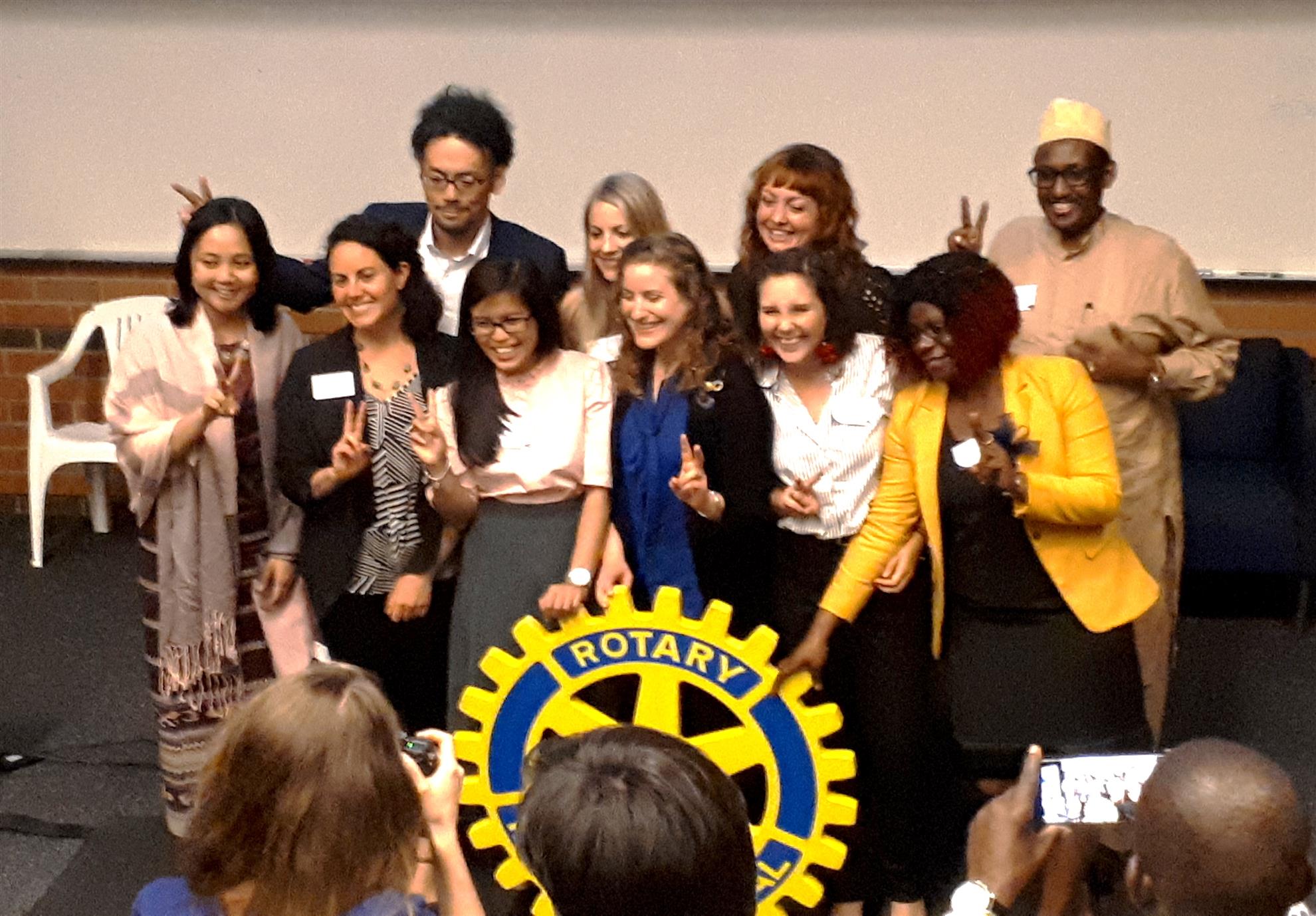 Well, if the graduates of the Class XVI of Rotary Peace Fellows from the University of Queensland are any indication, hold on to your hat! Out of the cohort of ten scholarship awardees, eight are female, and at least one, Mohamed Yussuf [yes Henrietta, I'd dare to say he is Muslim, not that that matters though] jokingly confessed to having been converted to feminism... All are natural leaders and highly dynamic. All are anything but "Ivory Tower' academics. All have done months of serious 'Applied Fieldwork Experience' relating to their study, in regions which are anything but peaceful - many have actually been brought up in such regions.
Well, if the graduates of the Class XVI of Rotary Peace Fellows from the University of Queensland are any indication, hold on to your hat! Out of the cohort of ten scholarship awardees, eight are female, and at least one, Mohamed Yussuf [yes Henrietta, I'd dare to say he is Muslim, not that that matters though] jokingly confessed to having been converted to feminism... All are natural leaders and highly dynamic. All are anything but "Ivory Tower' academics. All have done months of serious 'Applied Fieldwork Experience' relating to their study, in regions which are anything but peaceful - many have actually been brought up in such regions. Last Saturday, Ray Higgs (District Chair of Rotary Peace Fellowships) and your editor spent a hugely informative Saturday at the University of Queensland's Brisbane Campus, attending the annual seminar of the Rotary Peace Fellows - this year in its 16th class. Sponsored by my favorite charity, The Rotary Foundation, the scholarships enable graduates to attend university studies specifically addressing the prevention and mediation of conflict. So, how can I compress a full day's presentation into a short article? Even the presentation by Madenia
Abdurahman, the President of the Together for Humanity organization, is too broad to be summarized. Look, I'll make it simple: Madenia was brought up in South Africa long before Apartheid was outlawed. Her early life would come pretty close to the fictional ‘Tandia’ in Bryce Courtenay's eponymous follow up novel to 'The Power of One'. A truly remarkable person. Several of the fellows who came to our Multi-Club event last July presented on the processes, perspectives and field experiences. Topic titles ranged from "From Lemons to Pyjamas: How Research and Evaluation are Helping Build Everyday Peace in Colombia and Beyond" by Michelle Helman to "Shifting Perspectives: Healing and Reconciliation in Post-Conflict Cambodia" by the "pocket rocket" Miku Lagarde. Overall, there were four representatives from the USA and one each from Kenya, Philippines, Myanmar, Colombia, Japan and Uganda.
"Peace is more than the absence of conflict: it is an active process of building more inclusive, just and adaptive societies" was one of the lead themes of the day. Well spoken, but how can it be achieved? Well, so far The Rotary Foundation has sponsored some 1200 very switched on and determined young leaders. It is unlikely that world peace can ever be achieved (the armament industry will strongly lobby against it). But undoubtedly, as Raina Fox from the USA stated: "We keep applying the same solution to problems, even though they are not working". Every year, 100 leaders are trained to think outside the square, both academically as well as practically. To paraphrase last year’s RI President Ian Riseley: “Will make a difference? You bet.
Photo above (by Ray Higgs): The graduates saying farewell. For detailed information and photos of the graduates, click here.

